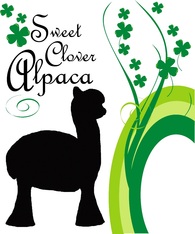Why Alpacas?
There is a growing demand for alpaca fiber in textile and fashion centers throughout the world and a drastically limited supply of these animals outside their native South American homelands. Peru, Bolivia, and Chile have stringent export restrictions on further transport of their national treasures in order to avoid depletion of their own heads.
Given the slow reproductive rite of alpacas and the superb quality of their fiber, consumers will likely continue to want more fleece than alpaca farmers can produce, thus creating a market where prices paid for alpacas and alpaca fiber will remain high.
Exciting and proven tax savings are another integral part of the investment value inherent in alpaca ownership. While these apply only to breeding animals and the infrastructure needed to maintain them, over 25 established avenues for tax savings are available to you as an investor in alpacas.
They include:
Depreciation on purchased breeding alpacas, structures, machinery, equipment, and other items whose useful life extends to more than one year. Complete write-off on many maintenance expenses, such as feed, veterinary fees, electricity for the barn, etc. Deferral on capital gains through utilization of the compounding plan which shelters profits until the alpaca is actually sold.
Compared to other livestock, alpacas are inexpensive to own. Aside from the initial purchase of your animals (which can be depreciated over five years), the maintenance costs for these hardy and healthy little animals are minimal. They are "earth friendly" and coexist in nature in a positive and productive manner. A little hay, grain, and clean water; a bit of room to move around with other members of their herd; safe fencing and shelter; and as much love as you want to give them. These are the best requirements you need to provide for your alpacas. You will quickly discover that they give much more than they take.
Flexible ownership strategies are also available to you. While the specific tax guidelines vary with the type of plan you choose, the investment value remains very high.
Alpaca farmers who have been in business for four years or more routinely report returns on their capital expenditure which range between 25 to 60 percent. Many variables can influence your actual profits, but as an alpaca owner, you are investing your assets in a vehicle with a proven record for profitability and which promises to become even more financially rewarding in the future.
Demand for alpaca fiber continues to grow dramatically. You will harvest your fleece each year and have the option of selling it yourself or consigning it to the alpaca fiber coop. The latter offers you an easy and guaranteed outlet for your fiber and promotes a greater awareness of and demand for alpaca fiber in the fashion world.
Your alpacas are fully insurable. Your modest premium costs will protect you from catastrophic loss of animals and capital in much the same way the FDIC covers your savings at the bank. Only your investment returns should be much higher with alpacas, however.
Like all camelids, alpacas are highly resilient to extremes in weather and altitude, making them the perfect investment livestock. Here is some great reasons to start being first time ranchers.
~ Gentle animals, great with kids
~ Minimal housing and fencing needs
~ Little maintenance or vet requirements
~ Only 1-2 bales of hay a month per alpaca
~ Soft, luxurious fleece
~ Great return on investment
~ Tax incentives and write-offs
~ Easy to finance ranch start-up
For the last 20 years the US Alpaca industry has grown by over 30% a year, with the average start-up ranch purchasing only 2-5 animals.
If alpacas are right for you, you don't need to do it big, you just need to do it!
Why Alpacas?
Alpaca ownership offers a number of advantages that make alpacas the optimum choice for new livestock breeders.
"The Animal"
What do you do with them?
Alpacas are a livestock, so you raise them just like sheep. But the fleece you get from the yearly shearings is far superior, and much rarer, than the wool you get from sheep. More importantly, it is a renewable resource, you don't have to slaughter them to see an income, like you would cattle or pigs.
How are they different from llamas?
Alpacas and llamas are close cousins in the animal kingdom, both being members of the camelid family. Adult alpacas weigh from 100-200 lbs., adult llamas weigh twice that, from 300-400 lbs. Alpacas are raised for their fine, luxurious fleece, comparable to cashmere. Llamas are raised as a pack animal, they can carry 70-100 lbs along uneven trails at high altitude. Due to their more aggressive nature, llamas are also valued as guard animals. Llamas sell for $50- $5,000, alpacas sell for $100 to $500,000.
How much do they eat?
Alpacas eat a fraction of what even a small horse will, consuming only an average of 1-2 bales of hay a month!
Are they friendly?
Alpacas are a herd animal, so by nature they can be a little skittish. That said, each individual alpaca will have its own personality, and with a gentle owner many will become incredibly friendly.
Do they spit?
As with all camelids, alpacas do use spitting as a form of communication. They usually use it to decide who will eat and when, so humans are rarely a target, they just occasionally get caught in the crossfire. Alpacas have individual personalities, so you can quickly learn who would be most likely to spit, and when.
Are alpacas dangerous?
Absolutely not! They are safe and pleasant to be around. They do not butt and rarely bite, and they do not have the teeth, horns, hooves, or claws to do serious injury.
Can I run alpacas with other livestock?
Alpacas can bond well with other types of animals. Naturally, alpacas and large aggressive dogs are not a good combination, but there are many cases of quiet dogs mixing well with alpacas.
Individual alpacas have been very successfully run with sheep and goats to act as fox guards. The alpacas tend to bond with the foster herd and they are naturally aggressive toward foxes.
If running with different livestock, alpacas will pick up the internal parasites associated with the other animals and should be put on the same fecal testing regime.
Because of the risk of the alpacas being kicked, caution should be used if running them with cattle or horses.
"The Business"
Are alpacas a good investment?
Alpacas make a great investment, they have held their value for the past 25 years, ever since they were introduced to the US. Each breeding female produces one cria (baby) a year, so your herd will increase exponentially every year, while keeping the supply limited, which keeps the prices stable.
Do I need to be a business wiz?
This all depends on what your goals are. If you want to become the alpaca breeding powerhouse then some business savvy will come in handy. If you just want to take advantage of the many benefits, and be a part of the alpaca community, then there are endless resources to assist you in finding the level of ownership you feel most comfortable with.
Do I need to own land?
You don't actually need to own land to take advantage of many of the benefits of alpaca ownership. You can board your alpacas, live in the city and own them strictly for the investment and tax benefits. But if you want to be a hands-on alpaca rancher, you can do so with as little as 2 acres.
Is raising alpacas difficult?
No, alpacas are one of the easiest livestock to raise for many reasons:
~ The average alpaca is a timid, gentle creature that needs little feed or care.
~ They don't challenge fences, so a light fence is necessary only for keeping unwanted animals out. If an alpaca does somehow get out, they are herd animals so they won't wander far from the herd.
~ They are from the Andes mountains, so they can withstand harsh winter climates, but when shorn in the spring will tolerate 100+ summer temperatures! So a basic loafing shed for shelter & shade is all that's necessary for housing.
~ They have one cria (baby) a year, and rarely require birthing assistance, or even vet care.
~ They form what is called a 'community dung pile.' They all poop in the same place, and you can decide where you want them to start.
Are they expensive?
On the low end, fiber quality alpacas, or non-breeders, can be bought as companion animals, or even pets, for as little as $100-$1,000. Depending on many factors, production, or breeding alpacas, can sell from $5,000 to $500,000 depending on genetics and show success. This diversity means that alpaca ownership is possible for just about anyone.
I hear there are tax benefits?
Yes, the tax benefits! There are many highly attractive incentives and advantages from our government that make alpaca ownership a real no-brainer.
Are alpacas smart?
Yes, they are amazingly alert animals who quickly learn to halter and lead. They constantly communicate with each other through body posture, tail and ear movements, and a variety of sounds. The sound heard most often is a soft humming, a mild expression befitting such a gentle animal.
"Earth-friendly Reasons to Consider Alpacas & Alpaca Products"
~ The Alpaca's 3-chambered stomachs allow for extremely efficient digestion. There is no organic matter (seeds) in the manure; therefore alpaca manure doesn't need to be composted to enrich pastures or ornamental landscaping. It's always a good idea to compost any manure used to enrich vegetable gardens.
~ Alpacas eat very little, only 1 1/2 - 2% of their body weight per day, so about 2 bales of hay per animal per month. This reduces the amount of emissions created, and fuel used to plant, harvest & transport their feed.
~ Alpacas are very hearty, only minimal housing and fencing are needed, with very little vet care. Only regular Fecals are performed via the FAMACHA protocol and CDT vaccines are given, never any hormones and rarely antibiotics.
~ Only minimal husbandry is needed, nail and teeth trimming every 6-12 months, and annual shearing.
~ By nature, alpacas are very gentle, so children can be around them without worry for animal or child safety.
~ Alpacas have only lower teeth at the front of their mouths, so they can't pull grass up by the roots like cows do, therefore alpaca pastures are sustainable year after year.
~ Alpacas do not have hooves, their padded feet are also very easy on the pastures.
~ Alpacas are fiber animals, they do not need to be killed to get a product.
~ Alpaca fleece is a renewable product that grows every year.
~ Alpacas live for around 20 years, twice as long as sheep.
~ As sheep's wool contains lanolin, very harsh detergents are required during processing. Alpacas do not have lanolin, therefore only mild, earth-friendly detergent is required when processing alpaca fiber.
~ Alpaca fiber is warmer than synthetics like nylon or polyester, naturally fire resistant, and hypo-allergenic.
~ Alpaca fiber comes in 22 natural colors, reducing the need for toxic dyes that harm the environment.
June 20, 2014

